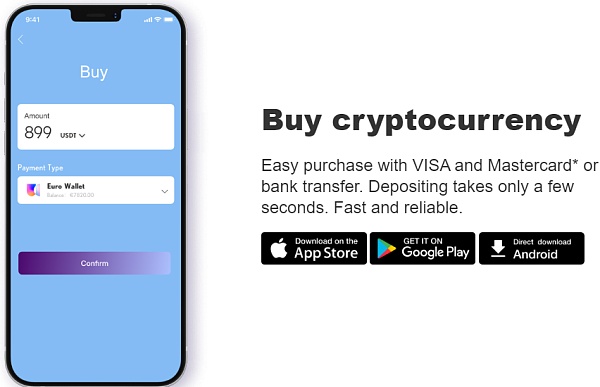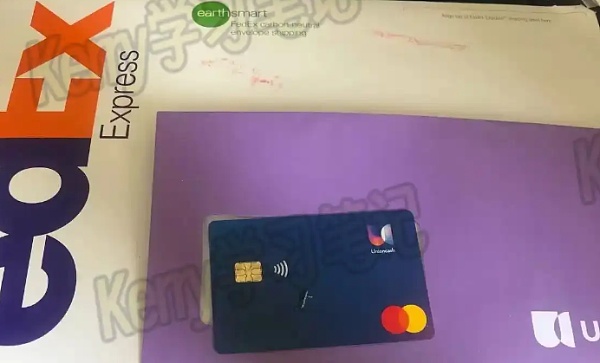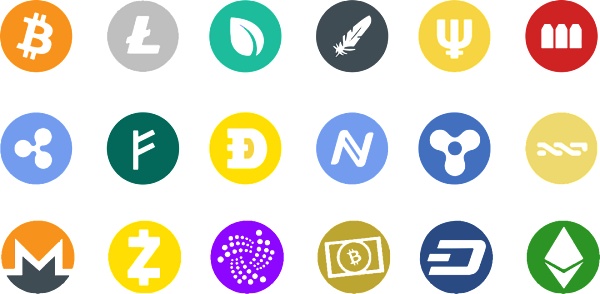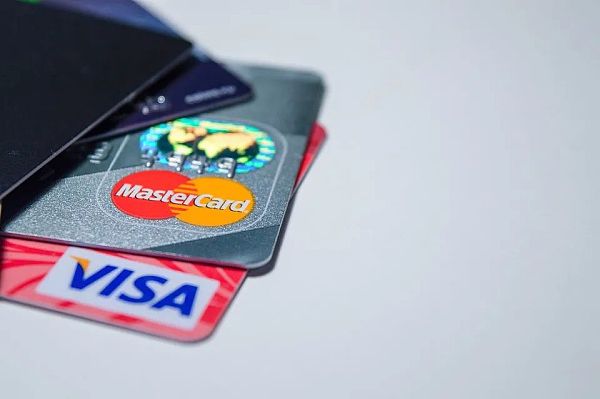Author: Lawyer Liu Zhengyao
Introduction
From last year to this year, the so-called "U card" has been understood and even used by more and more people. Some netizens added Lawyer Liu on WeChat and specifically asked whether the "U card" can be legally used in mainland China. What are the legal consequences in the worst case scenario? After searching for relevant information, Lawyer Liu wrote a short article to do a simple science popularization.
一 What is MasterCard U Card?
The "U card" on the market now generally refers to the MasterCard U card. Of course, VISA also has its own U card. The models of the two are roughly Similarly, let’s take MasterCard’s U-Card as an example for analysis.
MasterCard U Card is actually Unioncash Card. According to online information, it is a MasterCard bank card launched by a Chinese bank in Lithuania (Paytend). It has the capabilities of traditional banks. In addition to the card functions, the highlight of this type of card is that it can be recharged through USDT, and then the cardholder can make daily purchases. Users in mainland China can also bind to third-party payment platforms such as Alipay normally.

(Screenshot of Unioncash official website)
MasterCard U Card implements a relaxed KYC policy Mainland Chinese citizens can also apply with their own ID cards, passports and other documents. After passing identity verification, face authentication and other processes, the bank will mail the physical card to the country based on the applicant's materials. For ordinary users, the main disadvantage is that the handling fee is too high, conservatively estimated at 4%-5%, sometimes even as high as 7%. <span yes'; mso-fareast- font-size:12.0000pt;mso-font-kerning:1.0000pt;">

(received by netizens Physical MasterCard U card, source: "Kerry's study notes", infringement and deletion)
二 The "working principle" of U-card
How international U-cards, including MasterCard U-card, work, I believe many friends are interested in topic. Especially if mainland Chinese residents successfully apply for such a U-card, they can directly recharge USDT into the card, and then they can go to the store to spend money and buy goods. How is this whole process implemented?
At present, Lawyer Liu has not checked the authoritative explanation or the official explanation of the U-card issuer. According to my own understanding, the U-card requires at least the following processes to realize offline physical consumption:< /p>
(1) Hold a U card;
(2) Hold USDT TEDA currency, and Transfer it to the wallet address in the U card (usually through a mobile APP, such as a bank APP that transfers USDT to the U card through Binance, Little Fox Wallet, etc.);
(3) Use the U card to swipe the card offline to make purchases and withdraw cash. At this time, the issuing bank of the U card (such as Paytend) will convert USDT into the corresponding legal currency (RMB, US dollars, euros, etc.) according to the market exchange rate;< /p>
(4) U-card issuing banks conduct inter-bank international clearing and settlement with banks that accept offline business (banks connected to cash withdrawals or consumer stores).
p>
That is to say, after domestic cardholders recharge USDT into the U-card, when they take the U-card to a store to buy a mobile phone, the store will receive RMB. , and does not involve the exchange between virtual currency and legal currency. This exchange process has been completed overseas by the U-card issuer.

三 Are there any legal risks for U Card related parties?
After knowing how the U card works, some friends may suggest that since using the U card does not involve the use of virtual currency in mainland China If it is exchanged with legal currency, is there no legal risk? Because what is explicitly prohibited in the "9.24 Notice" ("Notice on Further Preventing and Dealing with Speculation Risks in Virtual Currency Transactions") is "carrying out legal currency and virtual currency exchange business" and other businesses, when this business that violates mainland China's regulatory regulations is banned overseas After the launch of the bank, will it still be illegal for mainland Chinese citizens to use this kind of service? This problem can be analyzed from the following dimensions:
(1) U-card issuer
The role of the issuer of U Card is somewhat similar to the Virtual Currency Exchange, which provides users with the service of exchanging USDT for legal currency. Of course, actual virtual currency exchanges have many more functions. U-card services similar to those provided by Paytend Bank are only part of the business content of the exchange, but even so, according to the regulatory provisions of mainland China, such services of Paytend Bank are illegal financial activitiesin mainland my country. strong>, but similar to Binance and Ouyi, although our country prohibits them from providing services to domestic residents, various virtual currency exchanges have also used technical means (such as blocking mainland IP) to meet China's regulatory measures, but there are still domestic Residents use the services of Binance, Ouyi, including U Card through "Scientific Internet Access" and other methods.
Another factor is the jurisdiction issue. Even if overseas virtual currency exchanges violate China's regulatory policies and provide services to mainland China, our country's regulators actually It is difficult to conduct extraterritorial law enforcement, including cross-border law enforcement against the issuing banks of international U-cards.
U Card also has its own uniqueness: First of all, the business of converting virtual currency into legal currency engaged in by International U Card does not comply with the supervision in mainland China. policy; secondly, our country currently does not clearly stipulate that mainland residents are not allowed to use international U-cards; finally, international U-cards require international inter-bank settlement, which means that Chinese banks need to cooperate with the U-card issuer to complete an The implementation of the complete business.
Once Chinese regulators decide to ban the use of U-cards in China, a simple and crude, but "effective" way is to ban banks and U-cards in mainland China. The issuing bank of the card (such as Paytend Bank) can handle international clearing and settlement.

(2) Domestic users
For domestic U-card users, as long as they do not use the U-card to commit any illegal crime, In principle, there is no legal risk. It can be understood that there are basically no legal risks for so many mainland users of Binance and Europe and Italy (if they have not committed any crime using virtual currency).
Lawyer Liu noticed that some fellow lawyers analyzed that personal use of U-cards may constitute illegal business crimes due to illegal currency exchange, but such cases are special even if they exist. circumstances may constitute a crime. Normal U-card holders, after exchanging their RMB into USDT, then withdraw the funds in the U-card in foreign currencies (such as US dollars and euros). Under normal circumstances (for example, the exchange funds are less than 5 million yuan), In practice, it is difficult to say that it constitutes an illegal business crime of illegal currency exchange. (As for whether it is a violation of administrative regulations, Lawyer Liu holds a conservative opinion, but this opinion does not constitute a recommendation for readers to purchase and use U Card); as for using U Card to exchange large amounts of foreign currency (more than 5 million yuan) , there is indeed a very large criminal legal risk, especially if the U card holder cannot prove the source and purpose of the funds, or even involves stolen money, it is easy for the public security agency to file a criminal case.
(3) Domestic promotion and technical supporter
In the "9.24" notice, residents in China are clearly prohibited from providing marketing promotion, payment settlement, technical support and other services to virtual currency exchanges. For the same reason, we have already analyzed thelegal currency and virtual currency carried out by international U cards. The exchange business clearly violates my country's current regulatory policy on virtual currency and is an illegal financial activity. The mainland provides promotion, technical support and other assistance to the international U-card business activities in mainland China. Residents are at great legal risk.
Four Write at the end
If you look at it from a pessimistic perspective, with the increase in the number of U-card users in mainland China, we cannot rule out the possibility that it will attract strong attention from the judicial authorities, which will eventually lead to U-card being banned in mainland China; from an optimistic perspective, in the future, U-cards will be banned in mainland China. Judicial supervision on U-cards will be maintained as it is within a certain period of time, especially since existing cardholders can do things in a low-key manner with the attitude of "making a fortune in silence". But regardless of optimism or pessimism, under the current regulatory policies, once someone commits a crime based on the convenience of a U-card, especially a major crime that arouses public opinion, the living space of the U-card in mainland China will undoubtedly be sharply compressed. Let’s wait and see what the future of U-cards will be in China!
 JinseFinance
JinseFinance
 JinseFinance
JinseFinance JinseFinance
JinseFinance JinseFinance
JinseFinance JinseFinance
JinseFinance JinseFinance
JinseFinance JinseFinance
JinseFinance JinseFinance
JinseFinance JinseFinance
JinseFinance Bitcoinist
Bitcoinist Cointelegraph
Cointelegraph